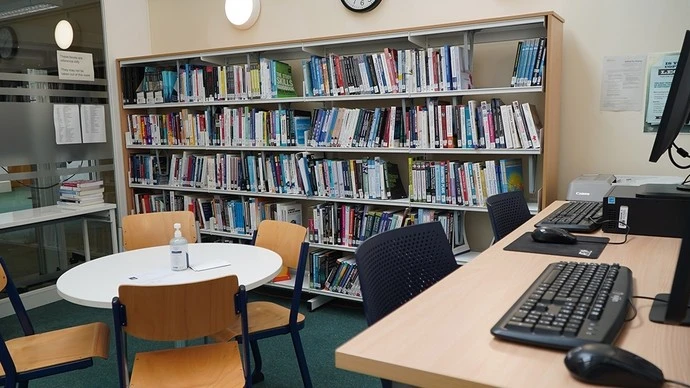Digital Services » Library & Learning Resources (LLR) » Library Accessibility and Resources

Library and Learning Resources are committed to providing online resources which are accessible to all our users.
We aim to provide resources that meet or exceed level AA of the W3C Web Content Accessibility Guidelines (WCAG) 2.2 and now include an assessment of accessibility as standard practice when purchasing new resources.
Our digital collections are hosted by third-party publishers on their own web platforms which are independently developed. Many publishers are prioritising digital accessibility and have their own accessibility statements.

If you experience any problems relating to the accessibility of our online library resources or services, or have any general queries please contact us at library@uwtsd.ac.uk
Our online library contains thousands of eBooks, from a range of different content providers with differing accessibility standards. To find specific eBooks you can find titles and authors using the library catalogue and view their accessibility statements where available.
eBooks are usually offered in two formats, depending on publisher preferences:
Occasionally there are items that may not meet accessibility criteria which are outside of the publisher’s or platform’s control. For example:
If you experience difficulties with accessibility of our eBooks, please inform library@uwtsd.ac.uk, and we will liaise with the content provider.
The Library Catalogue is powered by Ex Libris Primo. Primo is partially compliant with WAI Web Content Accessibility Guidelines 2.1 level AA. Further detailed information can be found in the Primo Accessibility Report.
Our Online Resource Lists are powered by Ex Libris Leganto. Leganto is partially compliant with WAI Web Content Accessibility Guidelines 2.1 level AA. Further detailed information can be found in the Leganto Product Accessibility Report.
RefWorks is an online research management, writing, and collaboration tool, designed to help researchers easily gather, manage, store, and share all types of information, as well as generate citations and bibliographies.
RefWorks is continually designed and developed to meet level AA of the W3C Web Content Accessibility Guidelines (WCAG 2.2). Further detailed information can be found in the RefWorks Accessibility Guide.
The Research Repository contains full-text research papers, journal articles, book chapters, and theses authored by University staff and students, and research data.
University Policy encourages researchers to make their work available online, free to the reader, as soon as possible after publication.
The University’s Research Repository is powered by Eprints. Accessibility statements for the Research Repository can be found at Research Repository Accessibility Statement.
Please note that older documents may not be in an accessible format. If you wish to request an accessible copy of any document held in our Research Repository, please contact openaccess@uwtsd.ac.uk.
Our pages should adhere to the UWTSD accessibility guidelines.
Many browsers and applications have inbuilt accessibility features to help improve the user experience.